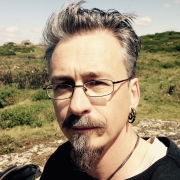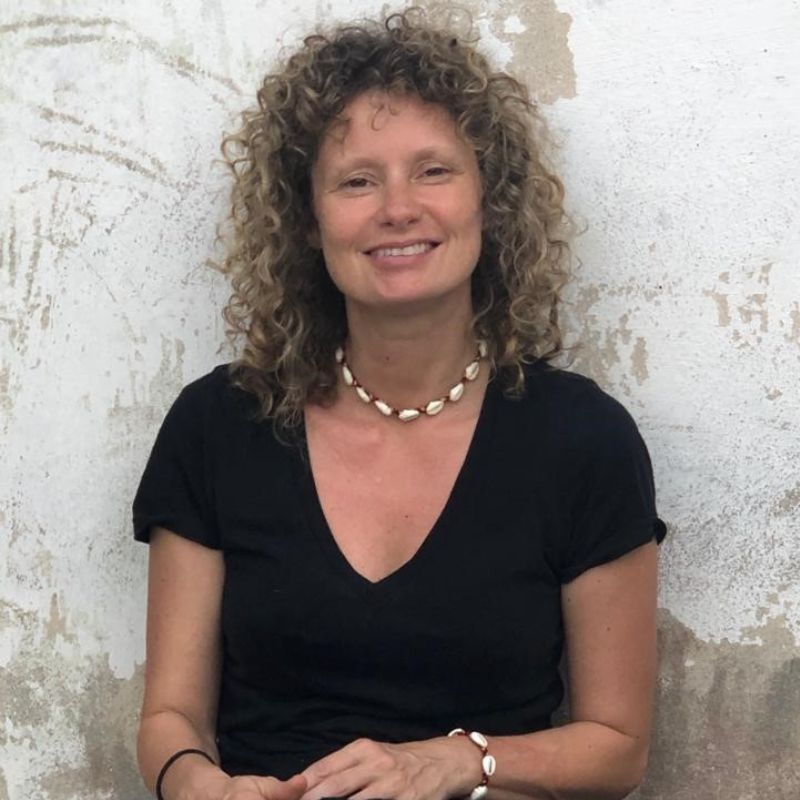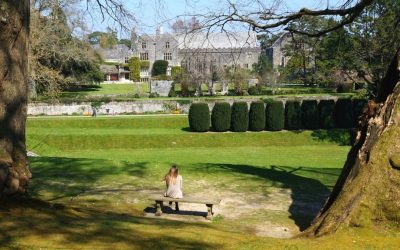overview
- A radical new experiment in embodied learning for students looking to reconsider their relationship with the more-than-human, and find solutions to the environmental and social crises of our time
- A course that enables you to experiment with a range of ways of engaging with the non-human world, whilst also allowing you the time and space to develop a personal understanding of the interconnected nature of the world and your place in it
start date:
course under review
Learning pathways
Our degree programmes are designed to suit the complexities of modern life, allowing you to live where you live and work where you work, whilst studying the subject you are passionate about as a member of our wide-reaching learning community.
For this course, all the below qualifications are offered on a six-month residency model.
Some qualifications are offered part-time – these are indicated below. More about flexible learning at Dartington >
MAster's (ft/pt; 180 credits)
The course is available full time over one year or part time over two years.
If taking the course part-time: In the first year you would take Engaging with Ecology in term 1 and Living Together in term 2. By the end of the first year you will therefore have accrued 60 credits. In the second year you would take Making Connections in term 1 and The Ecological Self in term 2 (a further 60 credits), then complete the dissertation (which brings you to the total of 180 credits).
Each module lasts six weeks. Teaching typically occurs Monday-Thursday, though occasionally on Fridays or during evenings. Please bear in mind however that you are expected to do independent study outside formal teaching sessions (a 30 credit module requires 300 hours of learning time).
Postgraduate Diploma (ft/pt; 120 credits)
A full-time (1 year) or part-time programme (2 years) with 4 x 30 credit modules.
If you enrol for the PGDip you would come here for two terms, taking modules 1 and 2, Engaging with Ecology and Making Connections, in term 1, and modules 3 and 4, Living Together and the Ecological Self, in term 2. The PGDip accrues you 120 credits.
If you enrol for the MA you can chose to exit the programme at the end of term 2 with a PGDip. However, if you enrol for the PGDip you cannot automatically upgrade to the MA. You would have to graduate, reapply the subsequent year and continue the remainder of the programme then.
Postgraduate Certificate (60 credits)
If you enrol for the PGCert (full-time study only) you would come here for just one term and take modules 1 and 2, Engaging with Ecology and Making Connections. The PGCert accrues you 60 credits.
If you enrol for the MA you can chose to exit the programme at the end of term 1 with a PGCert. However, if you enrol for the PGCert you cannot automatically upgrade to the MA. You would have to graduate, reapply the subsequent year and continue the remainder of the programme then.
Single Module
It is possible to take Module 1 of this course as an accredited student. Please contact admissions@dartington.org for more info.
We have also made Modules 1 and 2 of Engaged Ecology available as unaccredited short courses, for those interested in the experience rather than the qualification. Please explore the Making Connections and Engaging with Ecology courses on our unaccredited course listings via this link for more info.
course content
Engaged Ecology asks three fundamental questions: What is place? Who are we? And, what, then, can we do?
“The Engaged Ecology course fills a gap in education as it provides the hands-on experience and resources that are usually left to the student’s own initiative … the academic subjects are the most relevant and useful in the time we live” – Laura Pasetti, Alumna
WHAT IS PLACE?
If the climate crisis is too enormous a problem for any of us to grasp, we all nonetheless have a relationship to place, the immediate world about us. Through various ecological practices of deep observation and immersive engagement, through making and theoretical reflection, we will question what we mean by place and discover the historical, economic, cultural and ecological entanglements that together create a sense of place. We will discover for ourselves the meaning of terms like ‘ecology’, ‘nature’, ‘anthropocene’, ‘Gaia’, ‘participation’, ‘craft’, and ‘self’.
By developing competence in various practices of making we will explore cultures of production. The exact practices will vary according to availability, but might include weaving linen fabric that’s been grown from seed and prepared at every stage by hand; or felling a tree to hand carve a cup, a spoon, or a bowl; or writing, designing, typesetting and printing a magazine. How do these practices enrich our understanding of, or highlight our dislocation from, place?
Rather than approaching these questions from an epistemological framework of ecophilosophy, Engaged Ecology builds a scaffold through the radical assertion that higher education must first and foremost be a physical engagement with our shared socioecological/material world. It is through first-hand experience of place that we build an immersively tactile ontology that will serve as the foundation for the conceptual framework we develop through the arc of the programme.
WHO ARE WE?
Using various practices, so-called ‘technologies of the self’, we will examine what we mean by ‘the self’. Can there ever be an ecological self, or are we ordained by biology, or culture, to be atomistic individuals? What happens if we entertain indigenous or posthuman ideas in which the boundaries of the self are regarded as porous? What role does spirituality play in shaping or shaking up the self? Why is it that as social beings, who come together in community, we exclude even as we include, on the basis of sexuality, gender, race, class, ability, or species even? How can we (can we even?) reconcile living in community with a decentralization of human identity? Can we fully permeate the boundary between ego and eco? By living, learning and working together in community, here at Schumacher, we will ask what we mean by community and consider how it could be done differently in the world.
WHAT CAN WE DO?
Finally, we challenge students to address how they can best act in the world. We examine theories of change, movement building, and non-violent direct action and ask if there are different ways of being ‘activists’ that do not replicate the very thing we are trying to change. Must change always involve opposition? Is there such a thing as post-activism? The dissertation gives students the opportunity to dive deeply into these questions and to begin to envisage a career path after graduation.
Throughout this radical programme we give students the space to learn experientially, to reflect on what they’ve done, to consider abstract theory, and to experiment with new possibilities. Students will be able to draw on and immerse themselves in the rich history of growers, makers, craftivists, radical thinkers, social entrepreneurs, pedagogues, adherents of alternative spiritualities, not to mention the land itself, that together comprise the Dartington experiment.
Engaged Ecology is the cutting edge of Environmental Humanities, an interdisciplinary arena that brings together leading progressive thought within science and the humanities to address the great problems of our age.
Schumacher College, along with college founder Satish Kumar, were recently awarded the RSA 2023 Bicentenary Medal in recognition of their “outstanding, regenerative and impactful contribution…… that is enabling people, places and planet to flourish in harmony.“
KEY FACTS
- Explore leading-edge thinking about the nature of being human in a more-than-human world
- Grapple with ecological problems through hands-on learning and deep reflection
- Develop the tools to become a leader in ecological, economic, and social decision-making conversations
- Fortify existing practice with a robust theoretical framework
- Be able to apply a deep and critical understanding of place in a broad range of contexts.
programme structure & modules
During the residential period you take two taught modules per term. Modules last six weeks and run consecutively. Teaching is typically Mon-Thurs, with occasional Friday and evening sessions. Each taught module is 30 credits. For a 30 credit module you are expected to complete 300 learning hours of which approximately 10%, or 30 hours, comprises face to face teaching.
Students can elect to live on the campus, in Dartington accommodation, or off campus in accommodation they have found. Early booking of Dartington accommodation is recommended and we strongly recommend that you stay on site, as the shared experience of living and working on the Dartington estate is key to your course experience.
Term 1
Making Connections – 30 credits
This module examines making practices as primary ways in which humans engage with the world at large. Students will experiment with a variety of practices, where possible performing every step of production from first principles to finished product, so as to explore, and reflect upon the many ways in which making entangles us with the world. Informed by theory, students will consider aesthetics, craft, materials, place and the role, if any, of the sacred.
Engaging with Ecology – 30 credits
This foundational module aims to provoke in students a greater understanding of our dire ecological predicament, its urgency and its historical and philosophical origins. Building on different practices of paying attention to and engaging with the world about us, it introduces critical terms and maps out key developments in ecological thought from various transdisciplinary perspectives.
Term 2
Living Together – 30 credits
This module examines the social and ecological implications of living together and asks what it means to belong in community. It seeks to understand how communities at once include and exclude, through the often invisible exercise of power. It considers the implications of extending the definition of community to include the more-than-human and investigates the role of structure and ritual in maintaining community.
The Ecological Self – 30 credits
This module considers the significance of the self in creating, maintaining or resolving the ecological crisis. It critiques Western notions of the self and experiments with and evaluates practices that may engender a more ecological self. In the light of theories of change and the post-activist critique, it then asks students to reflect on how they might best go on to act as ecological selves in service of a just world.
Term 3
Dissertation – 60 credits
Dissertations are 15,000 words long and are based on students’ original research (which can be literature or field based). Students will be free to develop their own ideas for subject areas in consultation with their dissertation supervisor, provided they meet the learning objectives of the module.
watch: overview of the engaged ecology programme
entry requirements
Qualification(s) required for entry to the MA
BA/BSc (Honours) Degree
A good first degree of UK 2.1 equivalent or higher in any subject, but preferably in the Humanities, Social or Natural Sciences. Where the degree is not obviously related to the programme candidates may be required to submit examples of their academic writing. In exceptional circumstances we will consider applications from candidates without a first degree, provided they can demonstrate an equivalent level of experience.
Other non-standard awards or experience
A willingness to play a part in the interrogating and co-creating of Engaged Ecology as an evolving discipline. Candidates will be considered with prior credited learning and prior experiences subject to interview.*
Interview requirements
All applicants are required to attend an interview, either at the College or online. During the interview we will look for: evidence of intellectual clarity during interview; a clearly formulated purpose for taking the course; focused interests and a clear understanding of the ethos and philosophy of the College; readiness and ability to live and work in a communal setting.
*For further information please contact our admissions team at admissions@dartington.org.
fees
staff

Dr Andy Letcher
andy.letcher@schumachercollege.org.uk
Andy is the programme lead for MA Engaged Ecology at Schumacher College. Andy’s areas of expertise include neopaganism, shamanism, the new animism, and psychedelic spiritualities.

AnnA Selby
Anna Selby is a writer, researcher, and naturalist. Her most recent chapbook, Field Notes, was a Bestseller for two years running with The LRB Bookshop, was featured on BBC Radio 4’s Front Row and was an Irish Times Books of the Year.
Read MoreGuest lecturers

ISIS BROOK
Isis Brook completed a PhD on Goethean science and Husserlian phenomenology in the early 1990s. She has taught philosophy for over twenty five years mainly teaching environmental philosophy and aesthetics; first at Lancaster University and then the University of Central Lancashire.
Read More
Denise Rowe
Denise Rowe is a creative practitioner, ceremonialist and experiential facilitator with over twenty years experience in creating and holding safe spaces for powerful transformation.
Read More
Jessie watson brown
Jessie is on a path of rewilding, reconnecting, reskilling and remembering.
Read More
Alex Finberg
Alex is a British green wood worker based in South Devon, using age-old carving techniques to carve wood into beautiful, functional woodenware from wind fallen and sustainably cut local trees.
Read More
Eve Annecke
Eve Annecke is a Bertha Fellow, exploring action through the poetics of being. An activist for different ways of learning, for forty years she co-created ecological, community and educational endeavours in South Africa, including the Lynedoch Children’s House, Lynedoch EcoVillage and Sustainability Institute.
Read More
Selena King
Selena is a facilitator, researcher and life story writer.
Read Morecareers
Graduates leave to work in:
- NGOs: especially those tackling climate emergency
- Nonprofits: building relationships between people and place
- Permaculture: agroforestry, land management and community
- Business: making systems more resilient and regenerative
- Education: teaching in multi-disciplinary disciplines
alumni stories
Laura Pasetti
live chats & open days
latest news & blogs
Practising place-fullness with Dr Sarah Elisa Kelly
In this immersive reflection, Dr Sarah Elisa Kelly explores our understanding and experience of place and offers a simple exercise to help you feel more ‘place-full’.


